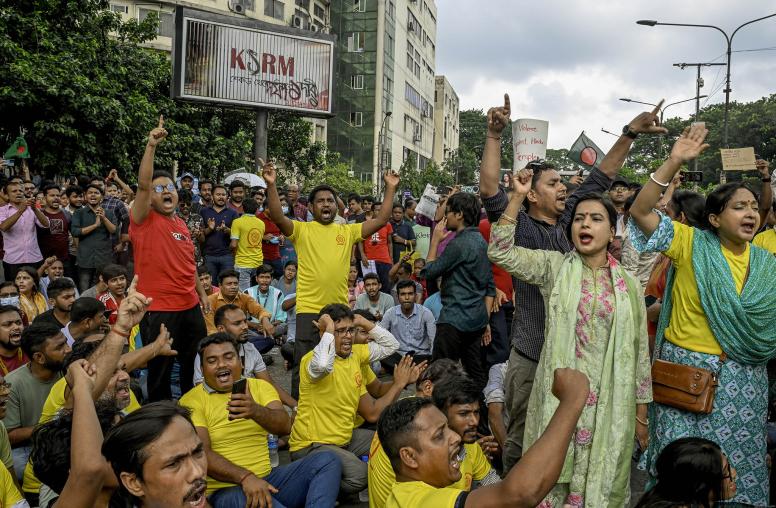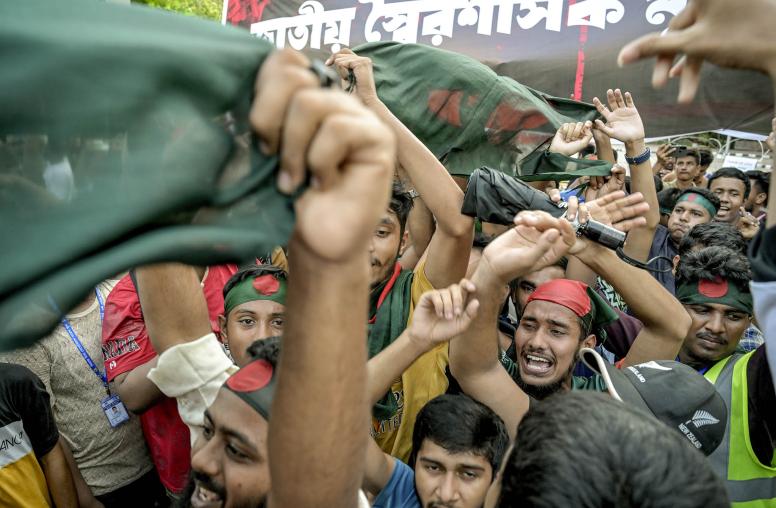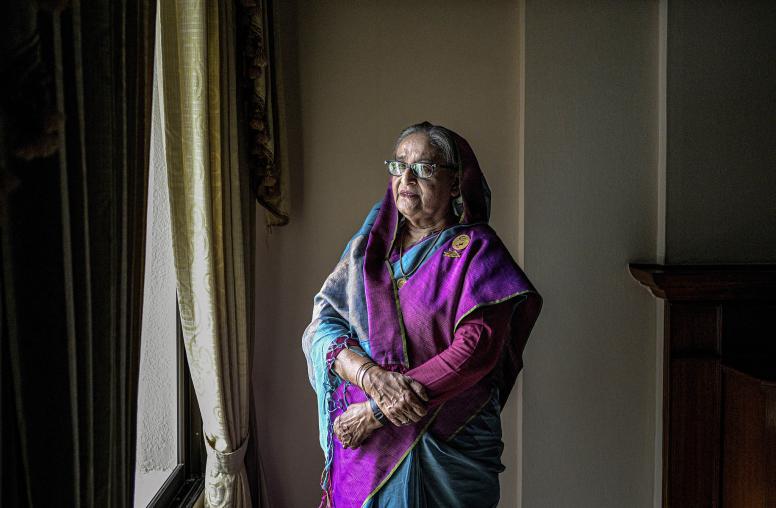Even in the tumultuous history of Bangladesh, the deadly campaign-related violence that plagued this year’s parliamentary elections seemed unprecedented. Hundreds reportedly were killed amidst bitter feuding between the governing Awami League and the opposition Bangladesh Nationalist Party. And yet the risk factors for such turmoil aren’t that different from difficult but more peaceful places like Malawi. A USIP project is examining those and three other cases to determine how and when electoral violence prevention efforts might be able to help.

Elections repeatedly serve as frequent flashpoints in conflict zones around the world. The countries involved and their international supporters have tried a range of approaches to prevent or mitigate such violence, from social media campaigns to reform of police and other security institutions so that citizens can be confident of their ability to stem or respond to attacks.
But it’s hard to know which of these mechanisms works and why. A recent USIP report, “Elections and Violent Conflict in Kenya: Making Prevention Stick,” pointed out that Kenyans don’t seem to share the view that their March 2013 elections were all that peaceful, despite extensive violence-prevention efforts supported by foreign donors who lauded the results. Instead, Kenyans reported “palpable tension, fear and anxiety felt throughout the country to explain the perceived stability at the surface,” the authors wrote.
USIP’s Center for Applied Research on Conflict (ARC) is conducting a comparative study of efforts to prevent electoral violence in five elections – the Jan. 5 parliamentary balloting in Bangladesh and the upcoming Nov. 30 parliamentary contest in Moldova, as well as voting in Malawi, Thailand and Honduras. Through projects like this study, ARC looks to unpack and test broader theories and assumptions about the peacebuilding field, examining what works and what doesn’t. Using a methodology of examining most-similar cases, researchers selected these five because they ranked as having a relatively equal risk of political violence, based on the academic research like that of the Political Instability Task Force and The Economist Intelligence Unit, but the actual degree of election violence varied widely.
Begun in June and likely to take at least a year to complete, the study aims to draw conclusions about the effectiveness of generally accepted prevention measures and how they can be fine-tuned; determine the effect of local context; and consider how election-violence prevention can be connected to broader, systemic peacebuilding efforts.
The Bangladesh case represents the more violent end on the spectrum of similar cases. USIP is working on the study in partnership with the Bangladesh Institute for Peace and Security Studies (BIPSS). Two experts with the security institute, retired Army Major General and BIPSS President A.N.M. Muniruzzaman and Associate Research Fellow Shafqat Munir, detailed this year’s election violence and the broader dynamics in the country, the region and beyond, during a discussion at USIP in October.
Polarized political process
Human Rights Watch reported that hundreds were killed over the three months before and immediately after the election, with violence this time even spreading beyond the traditional focal points in urban areas to outlying regions. Populations of Hindus throughout the country were singled out by armed parties from all sides in attempts to seize land and property, and communities of Buddhists and Rohingya along Bangladesh’s border with Burma/Myanmar, already facing displacement and disenfranchisement, experienced increased levels of violence. .
The political process also has become so polarized between the two main parties that the context becomes a series of zero-sum where the winner takes all and the defeated parties have little recourse other than boycotts and protests. After Prime Minister Sheikh Hasina refused to establish a neutral government in advance of the polling, as had been done in the past, the opposition boycotted the election. Thus, voter turnout that had reached 87 percent in the past plunged to 22 percent, and 440 polling places remained closed because of security concerns, according to the New York Times.
The electoral system in Bangladesh creates a “high-stakes political context that makes for a combustible political situation,” said Jonas Claes, the USIP senior program officer who is leading the study.
Another element of the context in which Bangladesh’s elections occur is that it has become a recruiting ground for the likes of extremist organizations such as al-Qaida in Afghanistan, Yemen and elsewhere, and the self-styled “Islamic State” in Syria and Iraq. The situation is exacerbated by the lack of regional security cooperation, allowing extremist groups and militants to capitalize on crackdowns against civil society and to exploit cross-border networks of violence and terror.
Bangladesh also is on the front lines of climate change, losing land at a rapid pace due to the rising ocean levels and risking the prospect of millions of people being forced from their homes because of the effects. But political leaders are unable to focus on such environmental threats because they are constantly in crisis mode and consumed by scoring short-term partisan gains.
In a complex situation as that of Bangladesh, local activists and international supporters will need to engage on multiple tracks to understand and address the country’s debilitating patterns. Without such an understanding, the more narrow aim of preventing election-related violence is almost certain to fail.
Ian Proctor is a program assistant in USIP’s Center for Applied Research on Conflict.



